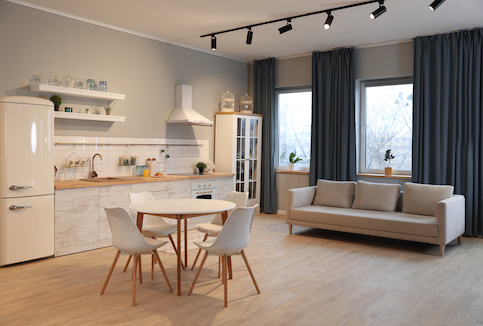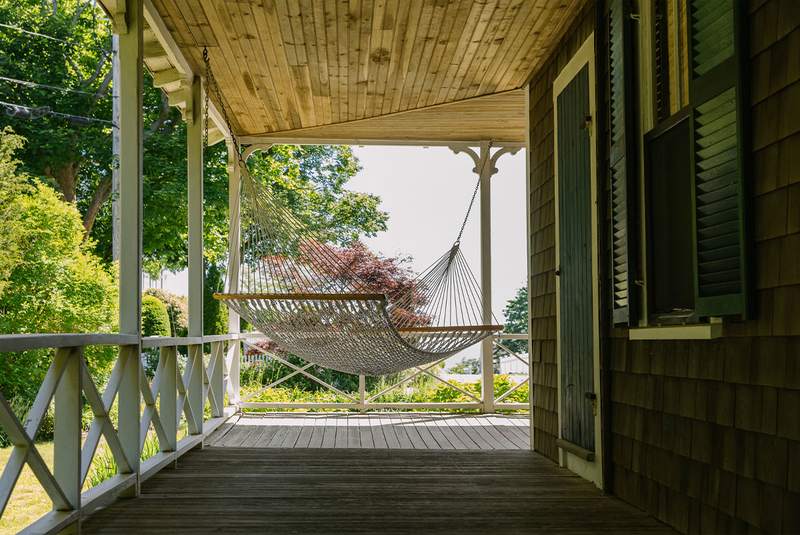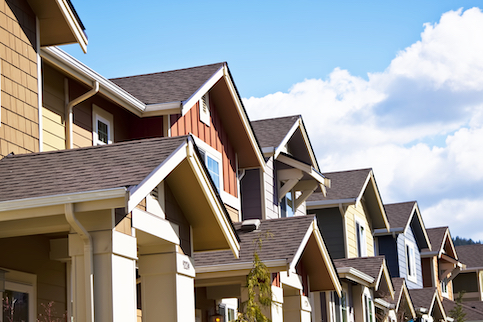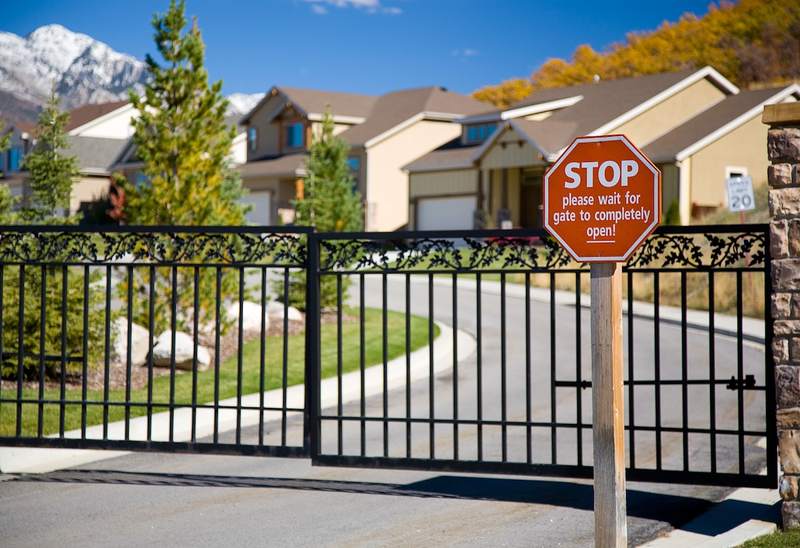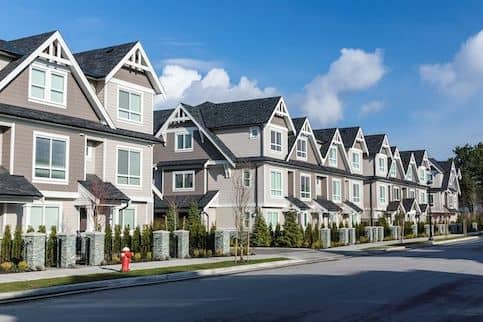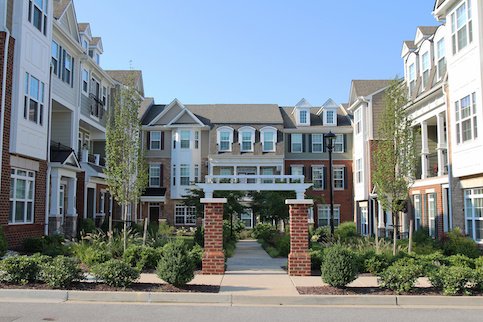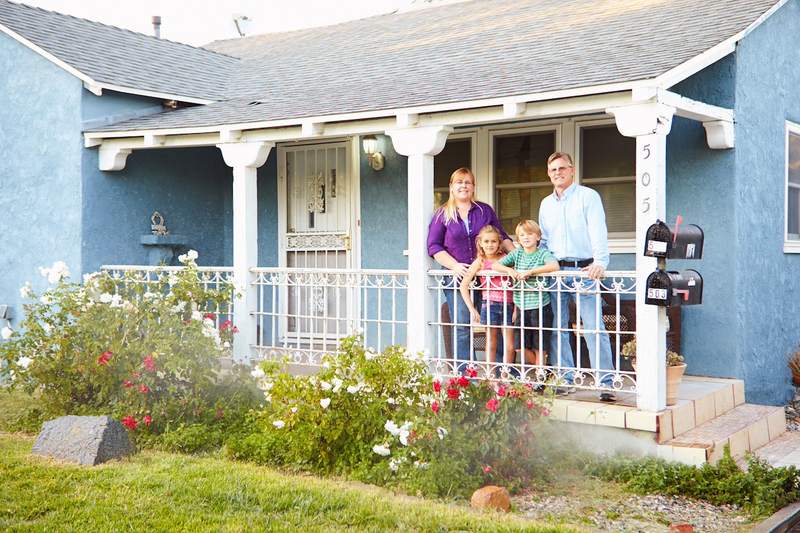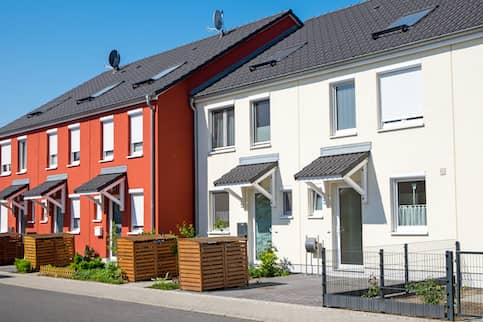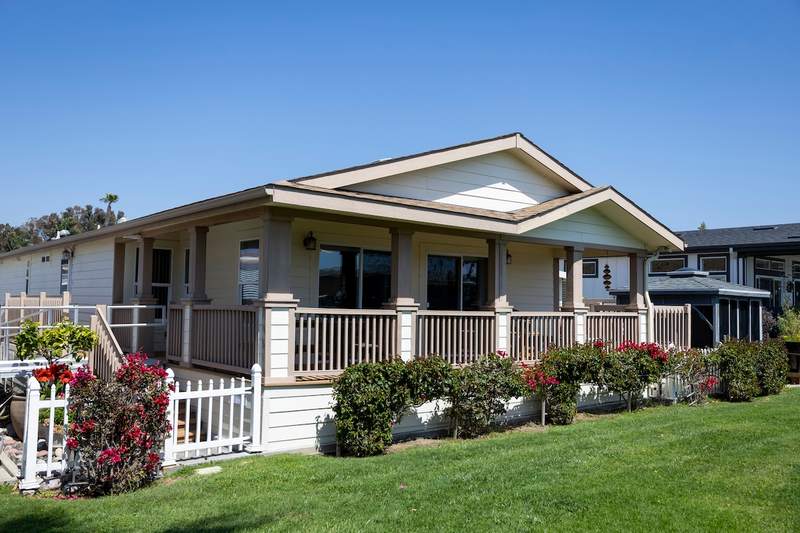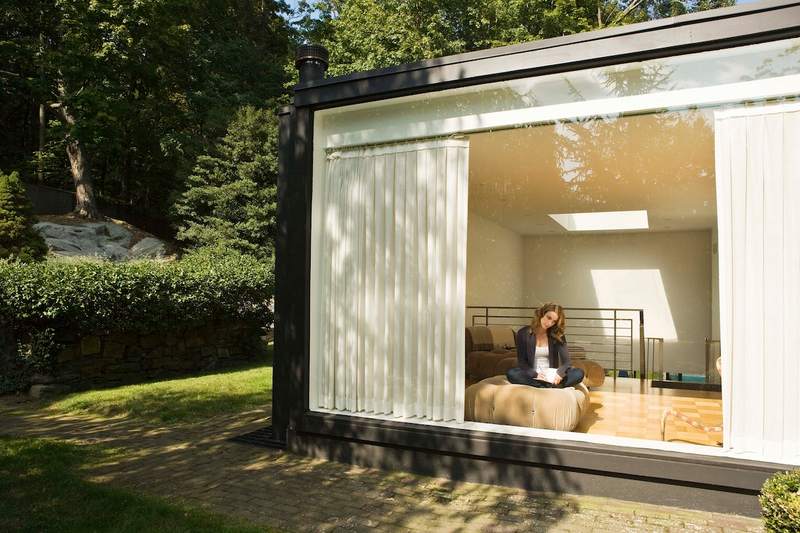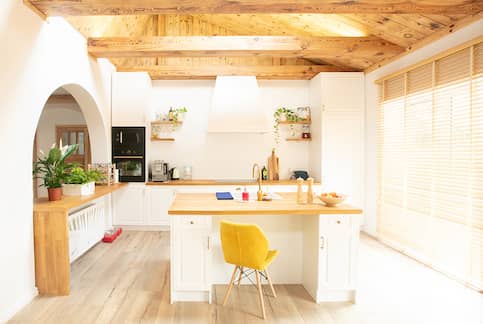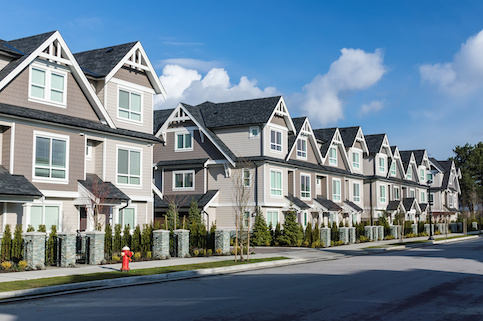Buying a duplex – a single structure containing two homes – is attractive because you can live in one unit and collect rent for the other. But there’s more to buying a duplex than that, so read on to learn the pros and cons.
Key Takeaways:
- A duplex is a single building containing two separate residences.
- Duplexes can be more expensive than single-family homes, but living in one unit and renting out the other can make it more affordable.
- There are different types of duplexes – some are side-by-side, while others are one on top of the other.
What Is A Duplex?
A duplex is a structure divided into two homes with separate entrances. The duplex has a single owner, and the living units typically share a wall or are on individual levels. While normally more expensive than single-family homes, duplexes are attractive because the owner can live in one unit and collect rent on the other. The rental income offsets the owner’s cost and has the potential over time to reduce or even eliminate their own monthly housing costs.
What’s Your Goal?
Buy A Home
Discover mortgage options that fit your unique financial needs.

Refinance
Refinance your mortgage to have more money for what matters.
Tap Into Equity
Use your home’s equity and unlock cash to achieve your goals.
Types Of Duplex Houses
The average duplex is roughly 900 square feet, though the size varies significantly. Duplexes typically come in two configurations: side-by-side with a shared wall, like a townhouse; or stacked on top of each other like an apartment building.
Common types here of duplexes include:
- Standard duplex: A standard duplex has two units side-by-side, each with two levels.
- Vertical duplex: This type of duplex has a unit on each level of a multi-story building.
- Ground duplex: Also known as a garden duplex, this is a vertical duplex where the ground floor has access to an outdoor space such as a yard, garden or patio.
- Low-rise duplex: A low-rise duplex is similar to a standard duplex but is lower in height, smaller in size, and may not have a balcony.
- Half-duplex: Also known as a semi-detached house, a half-duplex is two residences designed like separate homes but still sharing a common wall.
Ready To Become A Homeowner?
Get matched with a lender that can help you find the right mortgage.
Duplexes Vs. Other Types of Homes
Duplex ownership is similar to and different from owning or living in an apartment, condo, or townhouse.
Duplex Vs. Apartment
An apartment building includes five or more independent living spaces with common areas and amenities for everyone in the complex. Apartments have shared walls and floors like duplexes. However, apartment tenants pay rent and cannot own their units. Apartment dwellers often need landlord approval to make changes within their apartments, whereas duplex owners do not.
Duplex Vs. Condominium
A condo owner owns only the inside of their unit, while a duplex owner owns the entire structure. Condo owners usually pay fees or dues to a homeowners association that manages and maintains the building exterior and common spaces or amenities.
Duplex Vs. Townhouse
The main difference is that a duplex includes two units while a townhouse has only one. Townhouse owners generally have private yards, while duplex owners share common spaces, such as yards. Townhouse owners also may have an HOA with fees or dues to pay.
Duplex Vs. Twin Home
A twin home is similar to a duplex in that both types of homes share walls with another home. However, twin homes are two separate lots where the property line runs through the shared wall. Even though twin homes are connected, they have individual owners. With a duplex, both homes sit on one lot and have the same owner.
Duplex Vs. Accessory Dwelling Unit
An accessory dwelling unit is a smaller, separate living space on a property. ADUs come in many forms, such as basement apartments, garage conversions, or detached guest houses. Unlike a duplex, which has two separate residences, ADUs are considered an addition to the primary residence. Duplex homes have individual addresses, while ADUs usually share an address with the main house.
Take The First Step To Buying A Home
Find a lender that will work with your unique financial situation.
House Hacking with a Duplex
House hacking describes buying a home with the intent of renting out part of it to generate income. Here are some of the ways you can house hack with a duplex.
Renting Out One Unit to Cover Mortgage
A common form of house hacking is to buy a duplex, live in one unit and rent out the other. That way, your tenant’s rent check helps cover your mortgage payment.
Maximizing Tax Benefits and Savings
There are tax benefits to owning a duplex. If you have a tenant, you may be able to claim deductions on interest, depreciation, repairs, insurance, and management fees.
Pros And Cons Of Owning A Duplex
There are advantages and disadvantages to owning a duplex.
Pros
Potential benefits of owning a duplex include:
- Rental income: Owning a duplex means owning a primary residence and an investment property. The rental income can reduce your mortgage payment and help you pay it off faster.
- Potential tax breaks: Renting out one unit of your duplex may allow you to write off on your income taxes a portion of your property tax bill, mortgage interest and maintenance costs for the rental unit.
- You can build equity more quickly: Since a duplex often is more expensive than a comparable single-family home, and you’re receiving rental income to help you afford the monthly payment, you can build home equity more quickly. You can borrow your equity to pay significant expenses or make additional investments.
- Can help you downsize: Moving into a duplex from a single-family home can help you simplify your life while still allowing you to own a home and earn rental income.
- More privacy: Duplexes allow you to live close to your neighbors but in smaller numbers than in an apartment building or condo.
- Allows family to live nearby. If you have elderly relatives or family members with special needs, a duplex enables them to live close by and keep some independence.
- You’re in charge. If you own a duplex, you’ll set the rules your tenant must follow regarding noise, pets, parking and smoking.
Cons
The potential cons of owning a duplex include:
- Less privacy: You’ll have to share your building and property with another individual or family compared with a single-family home.
- Responsibility for repairs: Being a landlord means you’re obligated to make repairs, ensure the structure meets local building codes, and buy landlord insurance.
- Potential for problem tenants: While collecting a rent check is nice, being a landlord may not always be smooth sailing. Your rental unit may go vacant sometimes, during which no one pays rent. You also may end up with tenants who damage your property or fail to pay their rent, requiring you to evict them.
- Limited community: If you want a community around you, an apartment complex or condo is more likely to meet that need than a duplex.
- No amenities: Duplexes rarely include access to amenities common to apartment buildings or condos, such as swimming pools, fitness centers, community rooms, and parking.
FAQ
Here are answers to common questions about buying a duplex.
The Bottom Line
Duplexes are multifamily properties joined together, usually side by side, with separate entrances. They differ from apartments, townhouses and condos based on the number of units and where the living area is situated. Duplexes can be great home choices because of their versatility. However, do your research and consider your needs before investing in one.
Rory Arnold contributed to the reporting of this article.

Melissa Brock
Melissa Brock is a freelance writer and editor who writes about higher education, trading, investing, personal finance, cryptocurrency, mortgages and insurance. Melissa also writes SEO-driven blog copy for independent educational consultants and runs her website, College Money Tips, to help families navigate the college journey. She spent 12 years in the admission office at her alma mater.
